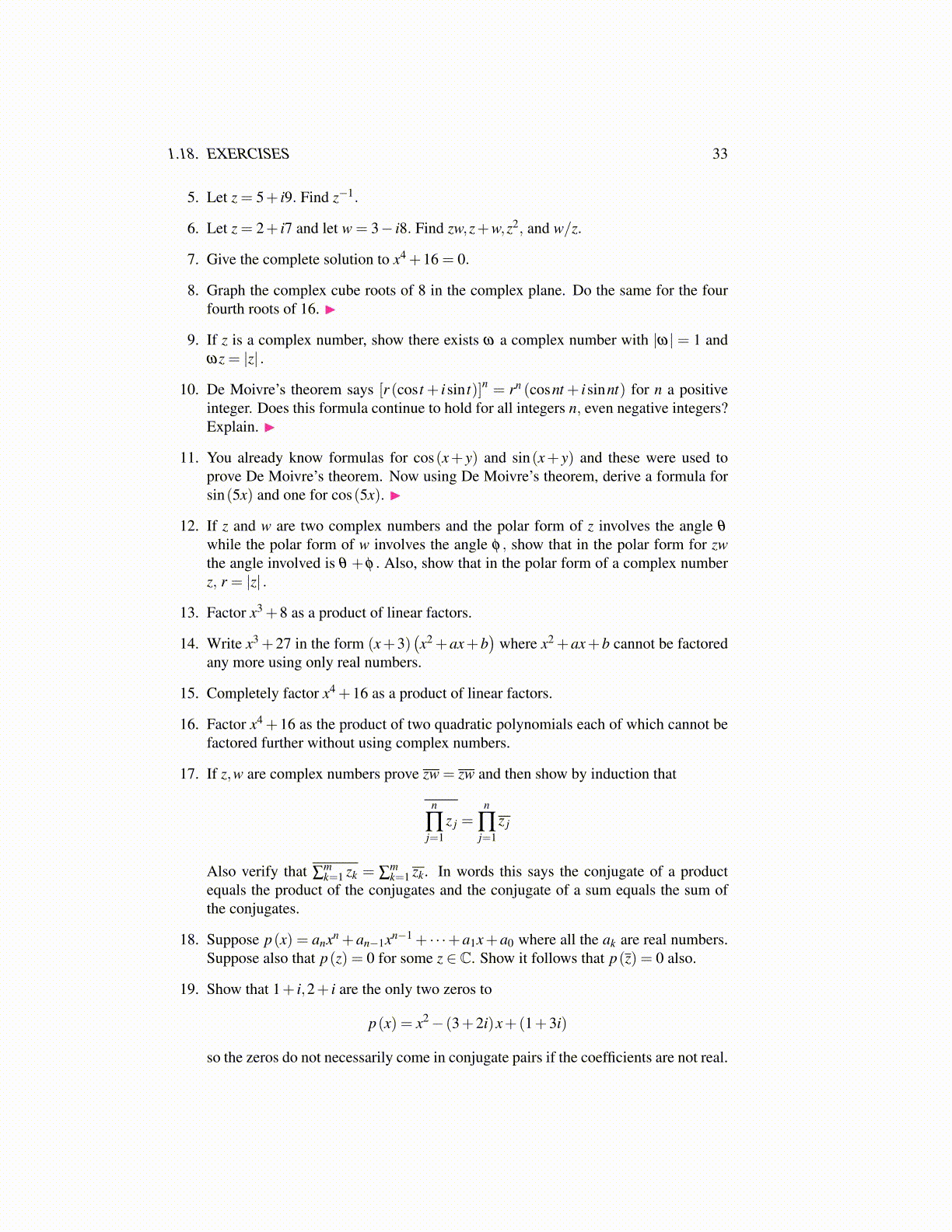
1.18. EXERCISES 33
5. Let z = 5+ i9. Find z−1.
6. Let z = 2+ i7 and let w = 3− i8. Find zw,z+w,z2, and w/z.
7. Give the complete solution to x4 +16 = 0.
8. Graph the complex cube roots of 8 in the complex plane. Do the same for the fourfourth roots of 16. ▶
9. If z is a complex number, show there exists ω a complex number with |ω| = 1 andωz = |z| .
10. De Moivre’s theorem says [r (cos t + isin t)]n = rn (cosnt + isinnt) for n a positiveinteger. Does this formula continue to hold for all integers n, even negative integers?Explain. ▶
11. You already know formulas for cos(x+ y) and sin(x+ y) and these were used toprove De Moivre’s theorem. Now using De Moivre’s theorem, derive a formula forsin(5x) and one for cos(5x). ▶
12. If z and w are two complex numbers and the polar form of z involves the angle θ
while the polar form of w involves the angle φ , show that in the polar form for zwthe angle involved is θ +φ . Also, show that in the polar form of a complex numberz, r = |z| .
13. Factor x3 +8 as a product of linear factors.
14. Write x3 +27 in the form (x+3)(x2 +ax+b
)where x2 +ax+b cannot be factored
any more using only real numbers.
15. Completely factor x4 +16 as a product of linear factors.
16. Factor x4 +16 as the product of two quadratic polynomials each of which cannot befactored further without using complex numbers.
17. If z,w are complex numbers prove zw = zw and then show by induction that
n
∏j=1
z j =n
∏j=1
z j
Also verify that ∑mk=1 zk = ∑
mk=1 zk. In words this says the conjugate of a product
equals the product of the conjugates and the conjugate of a sum equals the sum ofthe conjugates.
18. Suppose p(x) = anxn +an−1xn−1 + · · ·+a1x+a0 where all the ak are real numbers.Suppose also that p(z) = 0 for some z ∈ C. Show it follows that p(z) = 0 also.
19. Show that 1+ i,2+ i are the only two zeros to
p(x) = x2− (3+2i)x+(1+3i)
so the zeros do not necessarily come in conjugate pairs if the coefficients are not real.